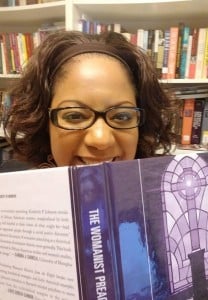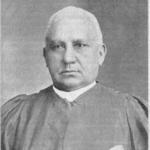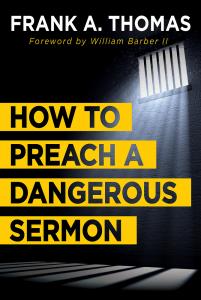The idea behind The Womanist Preacher: Proclaiming Womanist Rhetoric from the Pulpit evolved out of a conversation with Rev. Dr. Claudette A. Copeland on October 7, 2007. She had just finished preaching her sermon, “What Shall We Do For Our Sister?” at my home church, Mississippi Boulevard Christian Church, back when I lived in Memphis, Tennessee. I was one of the lay ministers at the church and my pastor, Dr. Frank Anthony Thomas, knew that I was studying womanist preaching/womanist rhetoric in my Ph.D. program at The University of Memphis, so he invited me to go out to dinner with the preacher and several others after the church service to a restaurant in the Madison Hotel. I should also mention that one of my Ph.D. committee members, Dr. Valerie Bridgeman, who happens to be a good friend of Dr. Copeland’s was at this dinner as well—there were about ten of us in total. I remember having that feeling of not only being spiritually fed after the church service, but feeling spiritually full, so to be able to sit and talk, or at least listen to the conversation taking place at the dinner table was an awesome experience. After the dinner was over, Valerie and I walked up to Dr. Copeland and I asked her if she considers herself to be a womanist. She said that she did, but that she did not think that her preaching adequately communicates womanist discourse. That is when I began to wonder if she can identify as a womanist and yet have difficulty projecting womanist rhetoric in the preaching moment, who is to say that other womanists do not share this same struggle? Her response is what prompted me to investigate the rhetoric of womanist preaching.
One might ask, what is womanist preaching? Womanist preaching is a homiletical art form situated in the African American female experience that seeks to bring about healing, liberation, and wholeness to all oppressed people through its social justice message. This form of preaching is necessary because African American women have been marginalized for so long, not just in society, but even within the sacred walls of the church. Too many times women have gone to church and gotten assaulted by the sin of sexism that was at the forefront of the sermonic message. I wanted to understand how does womanist preaching eradicate this problem for women? Plus, as an ordained minister, I wanted to understand how womanist preaching attempts to transform/adapt the tenets of womanist thought to make it rhetorically viable in the church; and what rhetorical strategies womanist preachers were using in their sermons to uplift, heal, and empower African American women.
The Womanist Preacher: Proclaiming Womanist Rhetoric from the Pulpit takes a close look at womanist preaching to discover what is rhetorically going on in these types of sermons. This book examines the sermons of five womanist preachers: Elaine M. Flake, Gina M. Stewart, Cheryl Kirk-Duggan, Melva L. Sampson, and the aforementioned, Claudette A. Copeland. The sermons are categorized by Stacey Floyd-Thomas’ phrased tenets that are used to represent Alice Walker’s four tenets of “womanism” —radical subjectivity, traditional communalism, redemptive self-love, and critical engagement. I apply Floyd-Thomas’s conceptual framework and use a close textual analysis to uncover what the preachers are actually doing in order to determine whether or not the sermons really do transform/adapt womanist thought. What I discovered is that radical subjectivity sermons speak truth to power by re-imaging a victim into a victor. Traditional communalism sermons call people back to their original beliefs and values. Redemptive self-love sermons honor those who unashamedly love themselves regardless by re-imaging villains into heroines. And, critical engagement sermons culturally critique the dominant normative views of society to help devise a plan that will fix societal problems.
The purpose of this book is to bring awareness to the rhetorical art form that exists in womanist preaching and womanist rhetoric because womanism has severely been under articulated within the academic disciplines. Therefore, it is absolutely essential that womanist rhetoric be studied, identified, and codified.
To purchase your copy, click here.
Kimberly P. Johnson (PhD, University of Memphis, 2010) is an Assistant Professor of Communication Studies at Tennessee State University. She specializes in the areas of Political, Religious, and African American Rhetoric, Rhetorical Criticism, Cultural Criticism and Womanism. Dr. Johnson has presented her research at professional communication associations such as: National Communication Association, Rhetoric Society of America, Southern States Communication Association, and Tennessee Communication Association. Prior to teaching in academia, Dr. Johnson worked in ministry as an Associate Pastor, Associate Minister, Children’s Ministry Director, Children’s Pastor, and Church Consultant.
Donate to the Work of R3
Like the work we do at Rhetoric Race and Religion? Please consider helping us continue to do this work. All donations are tax-deductible through Gifts of Life Ministries/G’Life Outreach, a 501(c)(3) tax exempt organization, and our fiscal sponsor. Any donation helps. Just click here to support our work.













